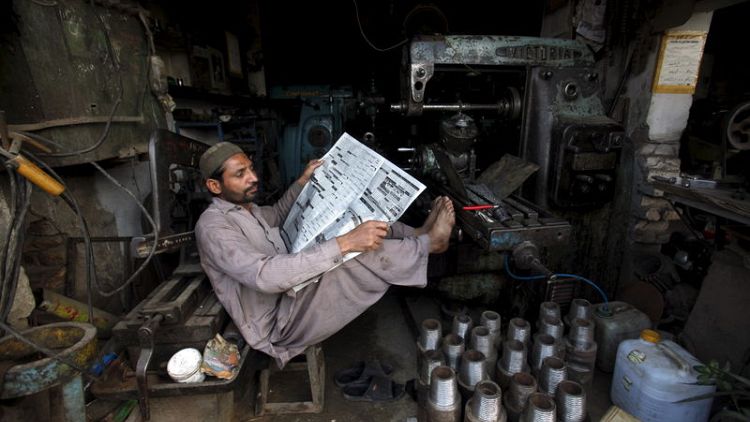By David Lawder and Yawen Chen
NUSA DUA, Indonesia (Reuters) - Pakistan has not formally approached the International Monetary Fund for financial assistance despite its economic woes, the IMF's chief economist said on Tuesday.
China's involvement in Pakistan's economy could bring both benefits and risks, Maurice Obstfeld said.
At a news conference at the IMF and World Bank annual meetings in Bali, Obstfeld said Pakistan is facing financing gaps as it has been hit by a large fiscal and current account deficit, a low level of reserves and a currency he described as "too rigid" and over-valued.
Prime Minister Imran Khan, who has been reluctant to ask the IMF for emergency loans, said last week Pakistan might need to return to the IMF to address its mounting balance of payments crisis.
If there is an IMF bailout package, it would be the second for Pakistan in five years.
Obstfeld applauded the government's pledges to push structural reforms to address its economic and financial issues, saying the Fund still views Pakistan with "immense potential" in growth.
"The government has expressed its desires to enact deep structural reforms that might break the cycle of Pakistan needing financial support from the Fund," he said.
INFRASTRUCTURE NEEDS
Pakistan needs more infrastructure development, Obstfeld added, and the country could benefit from China's role in supporting its project financing.
But China's involvement could also bring potential risks, he said.
"It is important that the design of the projects... be solid and excessive debts which cannot be repaid are avoided," he said.
Islamabad has cut the size of the biggest Chinese "Silk Road" project in Pakistan, a reconstruction of the main rail line between the port city of Karachi and Peshawar in the northwest by $2 billion, citing government concerns about the country's debt levels.
The changes are part of Islamabad's efforts to rethink key Belt and Road Initiative (BRI) projects in Pakistan, to which China has pledged about $60 billion in financing.
The Trump administration has been critical of China's Belt and Road initiative, saying that it has saddled some developing countries with debts they cannot afford to repay. In July, U.S. Secretary of State Mike Pompeo said there was "no rationale" for an IMF bailout of Pakistan that pays off Chinese loans to Pakistan.
Chinese officials have rejected criticism that the so-called China-Pakistan Economic Corridor projects have saddled Pakistan with unsustainable debts. Instead, the Chinese maintain, they have boosted the country's economic growth and provided 70,000 jobs.
(Reporting by Yawen Chen and David Lawder; Editing by Richard Borsuk)
